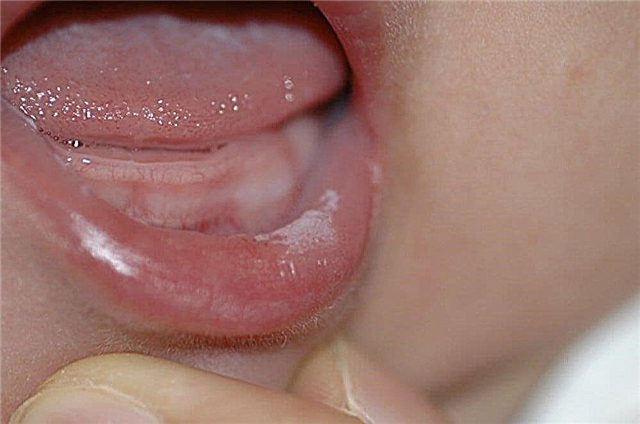
If your child stutters, or you think he is starting to stutter, you cannot wait. This speech disorder requires an immediate parental response. Evgeny Komarovsky, a well-known pediatrician and a favorite of millions of Internet mothers, claims that the most important thing in the treatment of stuttering is not to self-medicate. And certainly not to try to treat the baby using the Internet methods of unknown "specialists" who offer remotely, for a "purely symbolic" fee, send worried parents a detailed plan of action that can teach the child to speak normally.

Where to contact?
If there is reason to believe that the baby has begun to stutter, you should immediately visit a speech therapist. It is easier to do this now than 15 years ago, since many kindergartens use the services of an “attached” speech therapist. If there is no such specialist in your preschool institution, you need to contact the clinic at your place of residence. They will tell you where the nearest speech therapist is taking.
In addition, Komarovsky strongly recommends paying visits to two more medical specialists - a neurologist and a child psychiatrist. To exclude the neuro-somatic causes of stuttering.
What do parents need to know about stuttering?
First, stuttering is not a disease, but a speech disorder. And it occurs when the muscles of the child's speech apparatus are convulsively tense. As a result, sound repetition or prolongation occurs. The ancient Aztecs, who saw the cause of stuttering in the fact that a grown child continues to suck on the mother's breast, were puzzled by the treatment of such a disorder. The first methods for correcting speech during stuttering were developed by Plutarch. He invited stutterers to recite speeches under the loud sound of sea waves.

Despite the fact that medical encyclopedias say that the cause of stuttering is not precisely established, Dr. Komarovsky identifies several main causes of stuttering in children, which can be divided into congenital and acquired.
Congenital factors:
- Heredity. If mom, dad or one of the grandmothers or grandfathers stutter, there is a chance that the baby will also start stuttering.
- Intrauterine fetal hypoxia. If the baby did not have enough oxygen during the mother's pregnancy, speech impairments are the most harmless consequence of this condition.
- An infection transferred by the baby in utero. It happens that pregnant women carry infectious diseases. Together with mothers, unborn toddlers also get sick. The consequence of infection can be a speech impairment.
- Prematurity, premature birth.
- Hypoxia arising in the birth process.

Acquired factors:
- Strong fright that the baby went through.
- A big and important event in the life of a child (it can be both grief and joy).
- Postponed infectious disease. Stuttering may well be the result of measles, meningitis, encephalitis, etc.
- Unfavorable family environment, more often associated with manifestations of violence.
- Features of speech of mom and dad. If one of the parents stutters, the child can simply imitate the parent, in fact, he will not stutter.

Stuttering, according to Evgeny Komarovsky, is more susceptible to children with an unstable and weak nervous system, impressionable dreamers, and shy "loners". The age of the "risk group" is from 2 to 5-6 years. The age of 3 years is considered especially dangerous, when the baby enters the first age-related psychological crisis in his life. Boys begin to stutter more often for various reasons, since girls from birth have a greater resistance to stress, their psyche in childhood is more labile.
Age features of children's stuttering
Toddlers aged 1 to 4 years stutter in a special way. They try to repeat the same sound for a long time and rather painfully, and when they fail, the crumbs become isolated and generally become silent. In such children, says Evgeny Komarovsky, it is easier to notice stuttering if the child is outside the home.
When the baby is in a familiar environment, the speech defect is not so noticeable, he speaks more calmly and evenly, but in all its "glory" the violation is revealed if the little one is surrounded by a new unfamiliar environment. Stuttering at this age will surely manifest itself vividly on a walk, in a children's team - in a kindergarten, at a mass event, where the baby will try to communicate with other children.

If you notice that your little one is behaving this way, do not pretend that something terrible has happened. You cannot focus your attention on stuttering so that the child also does not begin to focus his attention on it. Children aged 3 years up to 4 years are more successful than others, amenable to correction, and the chances of correcting the defect once and for all are quite high. Go to a speech therapist.
Stuttering in children of 7 years old can be caused by an abundance of information new to them. At this age, the baby usually goes to school. Shy and nervous children find it difficult to withstand new loads. The situation is aggravated by ridicule from classmates. At this age, it's no secret that children are quite cruel towards each other. In this age group, boys are also leaders in the presence of a defect.

Treatment of stuttering according to Komarovsky
Dr. Komarovsky recommends that parents remain calm. Calmness - external and internal - will be the main cure for stuttering.
- It is necessary to determine the cause of the speech defect. After that, try to eliminate it. If the baby stutters because the parents are yelling at him, or they are yelling at each other in the presence of the child, it is necessary to "slow down" and provide the child with a normal calm home environment. If the cause of the stuttering is not clear, consult a specialist, you can visit a child psychologist. Observe the baby carefully, without pretending that you notice his problem, and find out exactly when he starts to stutter, what factors provoke him, what the weather is outside the window, what events precede the difficulty in pronunciation. From the observations, make a mini-diary that will help the specialist find out the true causes of stuttering.
- Try to speak with your baby clearly, slowly, clearly and clearly speaking the words. Ask your baby to try to pronounce the words only as they exhale. Speech therapists often use this technique.
- Say no to TV, noisy games, computer. Remember to be calm. It is better to protect the child from listening to loud music, cartoons or, even worse, TV news, emotional overload. Allow the baby to watch your favorite cartoon no more than 10 minutes a day. Try to include more often your child audio stories, which are read slowly, monotonously. Singing and breathing exercises will be beneficial, they are able to relax the muscles of the speech apparatus.

- For children - for children. Do not sort out family relations in the presence of a child, even if the baby is busy with his own affairs and pretends not to hear adults, he is just pretending. In fact, the baby "absorbs" all your words like a sponge.
- No entrance for unauthorized people! If your baby starts to stutter in the presence of strangers, try to keep the presence of these strangers to a minimum.
- Firming procedures. Komarovsky recommends baths and games in the water to stuttering children. Let the child use all the toys he has for fun, let him blow bubbles. It is advisable for the little one to take a bath at least twice a day. Outdoor walks are also very important.
- Baby food. Doctor Komarovsky advises giving the child more often products that, due to the high content of trace elements, have a positive effect on the development of speech function. These are sea fish, dried fruits, sour cream, cottage cheese, kefir, yoghurts.
- Massage. The massage should aim to correct posture problems, if any. A general strengthening massage is also suitable, which can be carried out in courses of 2 weeks with a break of 10 days.


Komarovsky advises to repeat these actions for a month, every day and strictly. If improvement is noticeable, treatment should be continued. If positive progress does not occur, the child should be shown to a neurologist and psychiatrist. Perhaps other methods of stuttering treatment are suitable for him - hypnosis (recommended for children from 10-11 years old), game therapy.
In the next video, Dr. Komarovsky and his colleagues take a more extensive look at the problem of stuttering in children.



